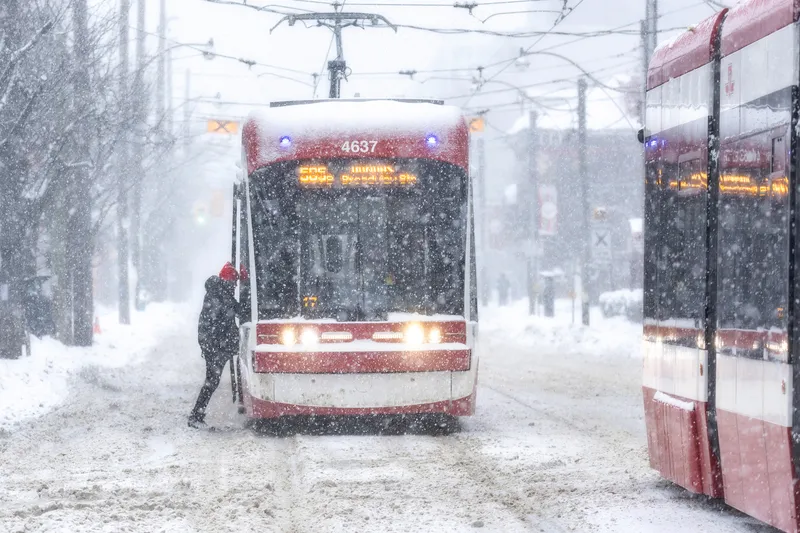
Toronto Transit Commission (TTC) is to develop and install enforcement cameras on four of its streetcars in a $460,000 pilot to prevent motorists from endangering public transport users.
Gatekeeper Systems will provide the technology for the nine-month pilot which is expected to begin in 2026 and will take the licence plates of vehicles which pass open streetcar doors - something which is illegal under Ontario’s Highway Traffic Act.
“Safety is our top concern, and every day, we hear about dozens of instances of cars passing open streetcar doors in mixed traffic with no regard for the safety of our customers,” said TTC CEO Greg Percy.
“We are serious about putting an end to that through new industry-leading technological solutions. This is the first step in that process.”
Between 2014 and 2024, TTC says 141 people were "contacted by vehicles while boarding or exiting streetcars". The agency says it also gets "anecdotal reports of open-door passing multiple times daily".
The current fine is up to $183.25 plus three demerit points. Gatekeeper's cameras will record the incident - but no fines will be issued during the pilot.
The TTC is also developing an on-street streetcar safety campaign to roll out in the next few weeks, reminding all road users that they must stop behind open streetcar doors.
“The TTC Board has made the safety of streetcar customers a priority for our operations teams, and addressing those who illegally pass open doors is an important part of improving safety,” said TTC chair Jamaal Myers.
“Through this pilot, we can fine-tune the programme and make the TTC an even safer way to get around the city.”
Doug Dyment, Gatekeeper president and CEO, says: “Protecting people in transit is our corporate mission and we are very proud to add Canada’s largest public transit system to our growing list of transit customers.”








